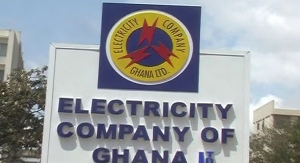The aL-hAJJ is today adding its voice to calls by the youth in Bawku and the West Africa Network for Peace Building (WANEP) for the lifting of ban on motorbike riding in the Upper East border town and its environs.
Much as the decision by the security agencies to impose the ban on motorbike riding in Bawku in 2010, to among others forestall the escalating ride-by shootings by unidentified persons, was heartily hailed by all, The aL-hAJJ believes the continued retention of the ban relative to present comparative peaceful atmosphere amounts to ‘collective punishment’ of the people of Bawku.
Four years on, people living in Bawku; natives, settlers and even public servants including health workers have sufficiently paid for the thoughtless activities of a few anti-progress elements; an unfortunate development the people never willed unto themselves and it is time to untangle them from the harm and pain they had to endured all these years.
The people of that part of the country have in recent past and on several counts appropriately proven they want to remain at peace with each other and we believe the continuous ban on motor riding in Bawku and its environs, which though has outlived its usefulness and does not serve the purpose of which it was imposed anymore; should be immediately reviewed.
As central government struggles to better the lots of Ghanaians, economic activities in that already deprived part of country is worsening by the day as a result of the ban on motorbikes.
Motorbikes up north is vital to the economic wellbeing of the people of the three Northern regions, Bawku not excluded, therefore, the continued ban on its usage in the face of significant improvement in the security situation there is not only retarding development, but greatly affecting the people.
We, at The aL-hAJJ are of the strong conviction the people of Bawku and its environs have learned their lessons the hard way and we dare say legislations are made to serve as corrective measures, and not to punish.
Activities in all the productive sectors of the area’s local economy, including agriculture, education, health and the general socio-economic life of the people continue to suffer as a result of the ban on motor bike riding.
Poor performance by BECE candidates in the area over the last four years have been attributed to the ban on motorbikes as teachers could not get to school on time to teach and supervise.
Circuit supervisors at the Ghana Education Service are unable to use motorbikes to their various circuits to monitor and supervise teachers to ensure they spend their contact hours well with the students.
Health delivery has also been affected greatly. A considerable number of lives have been lost as a result of the ban.
We, therefore, humbly plead with President John Mahama, as commander-in-chief and chairman of National Security Council to as a matter of urgency review the ban on motorbike riding in Bawku.
Regional News of Thursday, 8 May 2014
Source: Al-Hajj
















